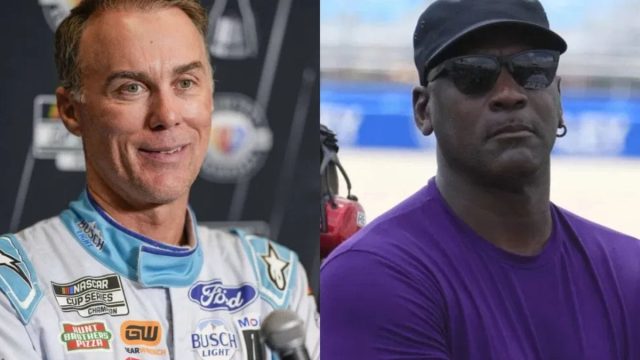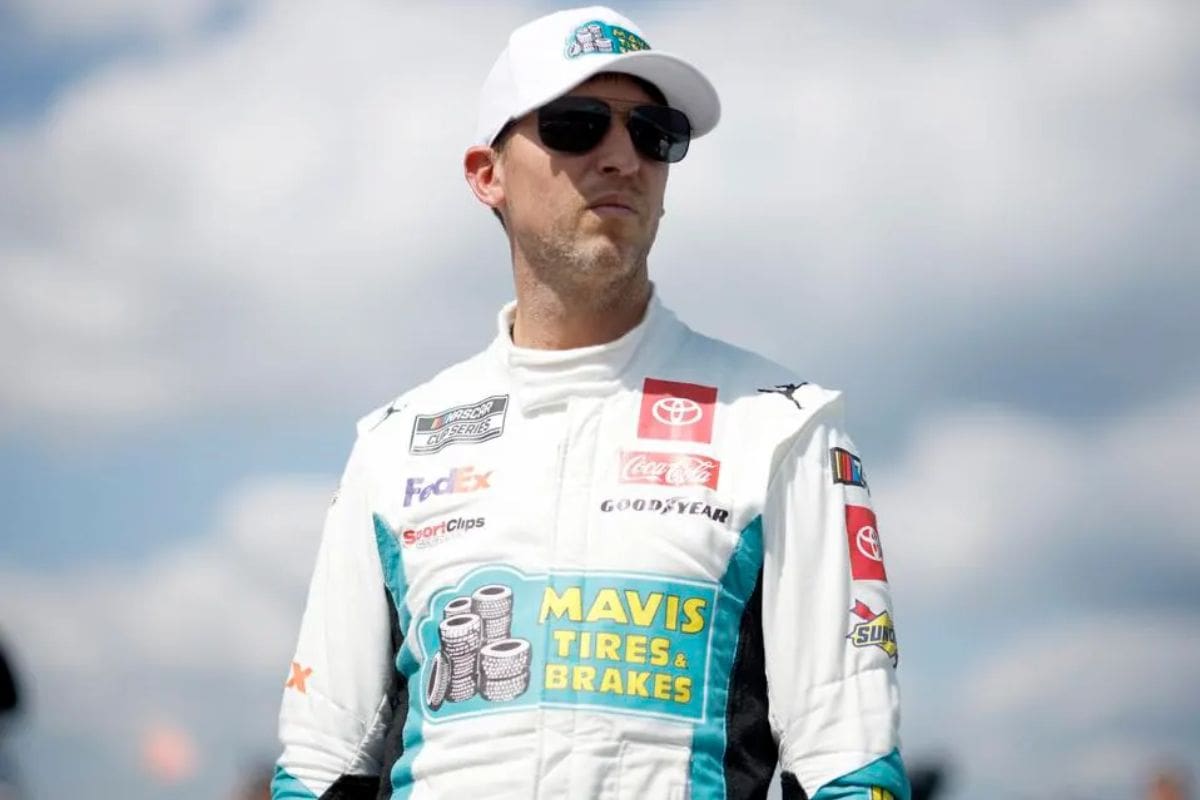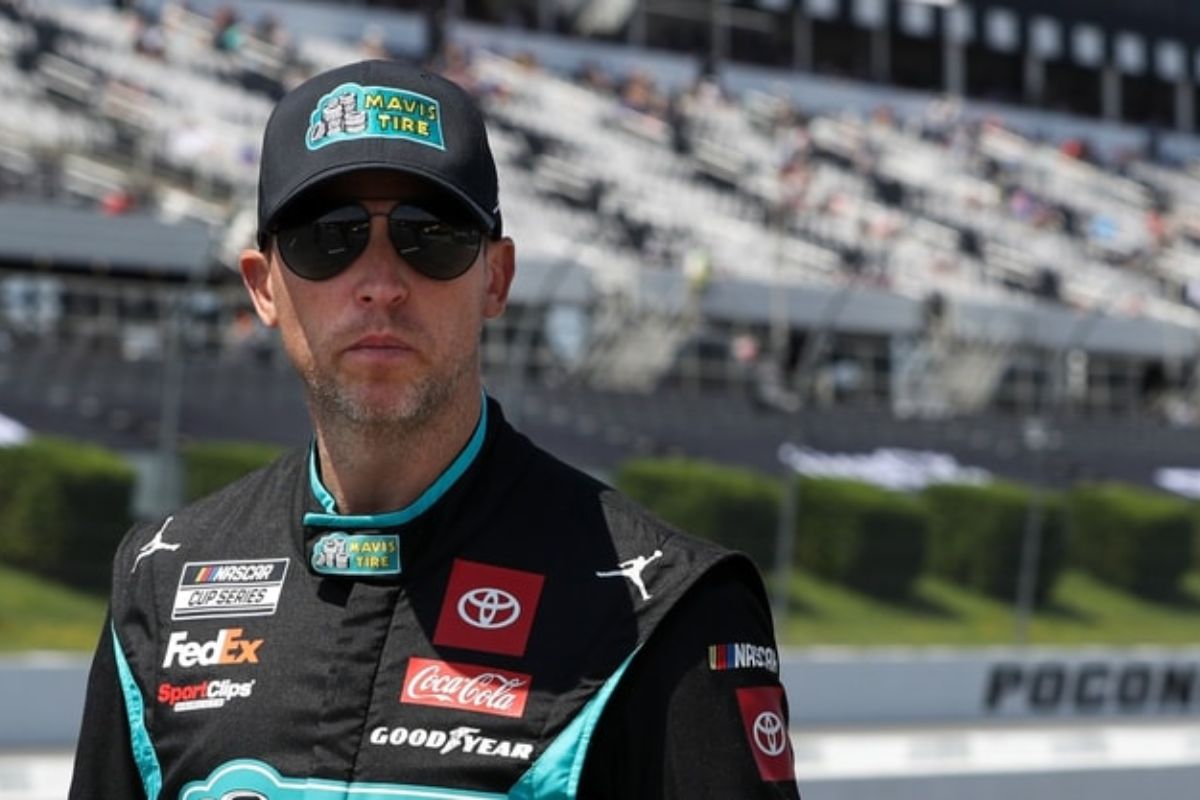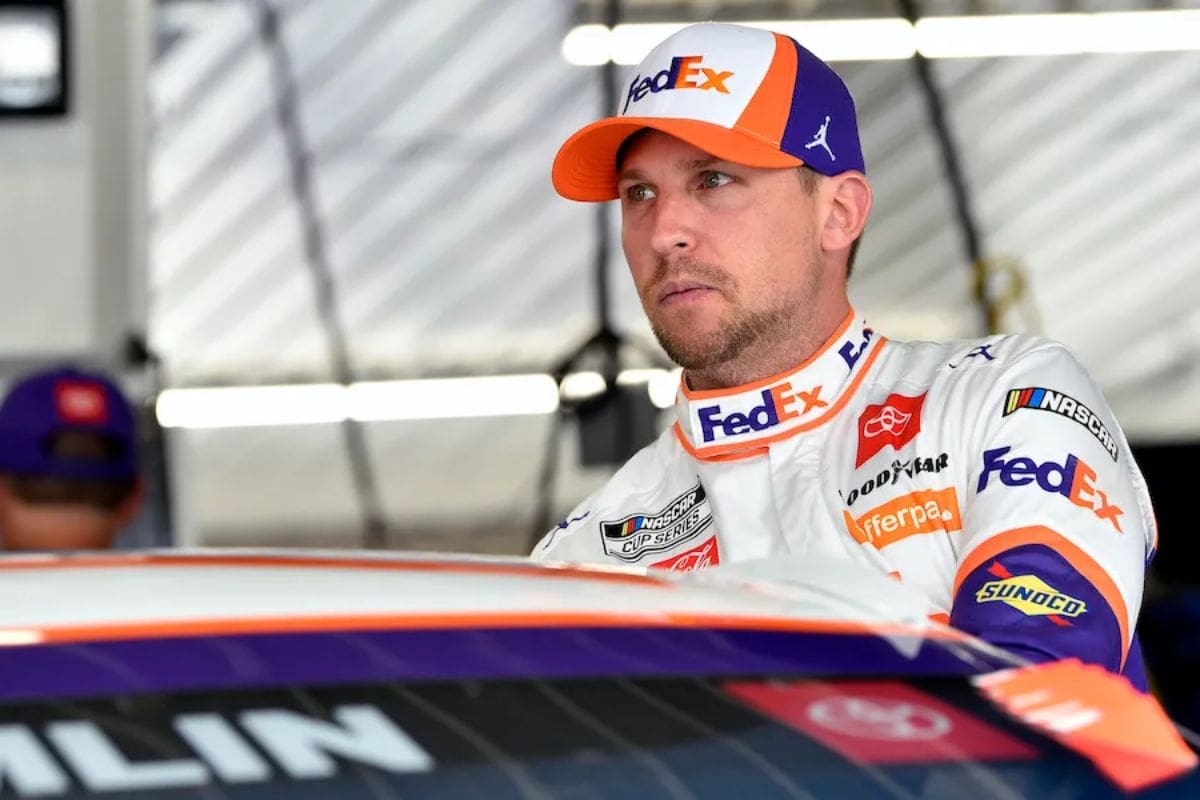Kevin Harvick Takes Aim at Michael Jordan’s Charter Clash: Kevin Harvick‘s recent critique of the charter negotiations involving Denny Hamlin‘s 23XI Racing raises essential questions about the intersection of business and performance in NASCAR. Harvick argues that the ongoing uncertainty is not merely a distraction but a substantial mental burden that compromises Hamlin’s competitiveness on the track. As tensions mount, it becomes clear that resolving these charter issues is imperative for both Hamlin’s immediate performance and the long-term viability of his team. What might this mean for the future of 23XI Racing, and how could it reshape the landscape of NASCAR competition?
Key Highlights
- Kevin Harvick critiques the ongoing charter negotiations, emphasizing their negative impact on Denny Hamlin’s focus and performance.
- The uncertainty surrounding the charter situation adds psychological pressure on Hamlin, affecting his competitive edge on the track.
- Harvick believes that external stresses from ownership responsibilities distract Hamlin from his driving duties and strategic execution.
- Hamlin’s recent struggles reflect the broader challenges faced by drivers amidst the turbulent charter environment in NASCAR.
- A resolution to the charter negotiations is deemed essential for stabilizing Hamlin’s performance and improving 23XI Racing’s competitive standing.
Denny Hamlin’s Current Struggles
Denny Hamlin is currently struggling with considerable challenges that are undeniably affecting his performance on the track. As a seasoned driver and co-owner of 23XI Racing, he faces the formidable task of balancing competitive racing with the intricate demands of team ownership.
The recent setbacks in the charter negotiations with NASCAR have significantly compounded his difficulties. Missing the deadline for securing a charter has left 23XI Racing vulnerable, as they are set to operate without one for the 2025 season. This uncertainty over Hamlin, likely contributing to his subpar finishes in the last two races, where he placed in the 20s—a stark contrast to the competitive edge he has maintained throughout his career.
For a driver of Hamlin’s caliber, who has consistently contended for titles over the past 19 years and secured playoff berths for 11 consecutive seasons, the current slump is a considerable deviation from the norm. The stress of ownership responsibilities may also be weighing heavily on him, diverting focus and energy away from his driving.
As he approaches Bristol, a crucial crossroads in the playoffs, are undeniably high. The intersection of his dual roles as a driver and team owner creates a complex landscape that demands not only skill on the track but also adept management off it.
Hamlin’s current struggles reflect a broader narrative of steering through the environment of NASCAR, where success hinges on both individual performance and organizational stability.
Kevin Harvick’s Assessment of Hamlin’s Performance
Recent evaluations of Denny Hamlin’s performance have sparked considerable discussion within the NASCAR community, particularly from veteran driver Kevin Harvick.
Harvick’s insights, shared on his podcast, shows the complexities facing Hamlin as he navigates the current playoff landscape. He asserts that the missteps in Hamlin’s strategy, particularly during the Atlanta race where the focus was on merely accruing 20 points, have contributed greatly to the struggles of the No. 11 car.
“I think when you look back at the driver strategy to go out at Atlanta and just try to race for 20 points, and then all the drama that’s happened, especially with the charters, it’s derailed the 11 cars.”-(KEVIN HARVICK)
Harvick points to the impact of the ongoing charter drama involving 23XI Racing as a potential psychological burden on Hamlin. This situation may not only affect Hamlin’s competitive edge but also his overall mindset.
“I think they can go to Bristol and put it back on the track, and they can go there and win, but what a dismal way to start the first two races.”-(KEVIN HARVICK)
Harvick’s assessment indicates a belief that external stresses can detract from a driver’s performance, and in Hamlin’s case, this appears to be materializing.
Despite these challenges, Harvick expresses a level of optimism. He emphasizes that Hamlin has the potential to turn the tide, particularly with an upcoming opportunity at Bristol, where a strong performance could solidify his position in the top 12 of the standings.
“We’ve seen some uncharacteristic things. I look at Denny Hamlin as a leader and a guy who is going to go out and be aggressive and always trying to win, but I just feel like when they went out at Atlanta and the strategy didn’t work out, it didn’t feel like they were on the same page with what his strategy was.”-(HAMLIN)
Harvick’s commentary covers the duality of Hamlin’s situation: while the current course has been disappointing, the possibility for redemption remains tangible.
Hamlin’s Performance at Bristol and Recent Issues
As anticipation builds for the upcoming race at Bristol, the spotlight is firmly on Hamlin’s recent performance, which has been a mixed bag of promise and frustration. Historically, Bristol has been a favorable venue for Hamlin, showing his competitive edge in the past two seasons.
However, recent assessments, particularly from Kevin Harvick, shows a concerning trend in Hamlin’s approach that could impact his playoff aspirations. Harvick noted that Hamlin, typically an aggressive driver and a tactical leader, has exhibited uncharacteristic hesitations, particularly following the Atlanta race where the team’s strategy faltered.
The team has raised eyebrows, suggesting that communication breakdowns may be undermining Hamlin’s efforts on the track. Furthermore, the looming distraction of the 23XI Racing charter negotiations appears to be weighing heavily on his focus, potentially diverting his attention from the immediate challenges of the race.
As Hamlin gears up for Bristol, he must recalibrate his mindset, finding a balance between competitive aggression and clarity. The playoffs amplifies the , making it imperative for him to channel any external concerns into his racing performance.
The upcoming race offers a crucial opportunity for Hamlin to not only reclaim his form but also to silence critics by demonstrating that he remains a formidable force on the NASCAR circuit. A strong showing at Bristol could reinvigorate his campaign and lay the groundwork for a successful playoff run.
23XI Racing Charter Negotiations and Future
The ongoing uncertainty surrounding the 23XI Racing charter negotiations introduces another layer of complexity to Denny Hamlin‘s challenges as he approaches the playoff season. Both Hamlin and team co-owner Michael Jordan find themselves entrenched in a frustrating stalemate regarding the elusive charter agreements. Following the Watkins Glen race, Hamlin openly acknowledged the absence of any dialogue with NASCAR officials about the charter’s future, a silence that amplifies the tension and speculation surrounding the team.
Earlier this year, 23XI Racing expressed an ambitious interest in acquiring an extra charter, particularly with rumors of Stewart-Haas Racing potentially downsizing. However, the lack of progression in discussions has left these aspirations hanging in limbo. This stagnation not only jeopardizes the team’s expansion plans but also raises questions about their competitive approach moving forward.
The stalled negotiations extend beyond mere operational concerns; they touch on the psychological and tactical dimensions of the sport. Uncertainty can hinder performance, as drivers and teams similarly thrive on a sense of stability and predictability. For Hamlin, the current impasse may detract from focusing on the immediate task of securing playoff success, as off-track factors weigh heavily on his mind.
As the season progresses, the need for decisive action regarding the charter situation intensifies. The future of 23XI Racing’s competitive landscape hinges on the resolution of these negotiations, demanding astute navigation through the complexities of the NASCAR framework.
Impact of Charter Negotiations on Hamlin’s Performance
Amid the ongoing charter negotiations, Denny Hamlin’s performance appears increasingly affected by the surrounding uncertainty. As a key figure in 23XI Racing, Hamlin is caught in a web of anxiety regarding the future of his team. The strain of ambiguity surrounding charter stability can greatly hinder a driver’s focus and mental fortitude on the track.
With speculation about potential shifts in the team’s structure, it becomes increasingly challenging for Hamlin to maintain the sharp concentration required for peak performance.
The frustrations expressed by 23XI Racing regarding their perceived exclusion from fair negotiations compound this strain. This sense likely seeps into the team dynamics, creating an atmosphere of discord that can distract from the singular goal of racing excellence.
As other team owners echo similar about the need for resolution, the ongoing saga adds layers of complexity that are difficult to ignore.
Furthermore, the emotional toll of such uncertainty can manifest in a driver’s performance metrics. Anecdotal evidence suggests that drivers who are mentally unsettled often struggle to execute strategies effectively, leading to a noticeable dip in results.
Hamlin’s recent struggles on the track could very well be a reflection of this broader, systemic issue within the NASCAR landscape. As he navigates this turbulent environment, the question remains: how much longer can he compartmentalize these challenges before they begin to overshadow his racing capabilities?
News in Brief: Kevin Harvick Takes Aim at Michael Jordan’s Charter Clash
The charter negotiations surrounding 23XI Racing present a notable challenge for Denny Hamlin, detracting from his competitive focus and general performance. Kevin Harvick’s critique emphasizes the necessity for resolution in these negotiations to alleviate the psychological strain on Hamlin. Without addressing these issues, the stability and future success of both Hamlin and 23XI Racing may remain jeopardized, showing the intricate interplay between organizational dynamics and individual performance in racing environments.
ALSO READ: Kevin Harvick Predicts Bristol Madness: Drivers Set for a Wild Elimination Battle



